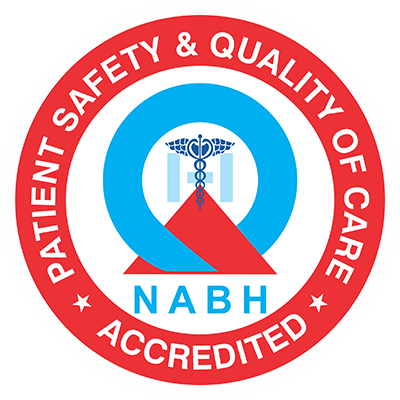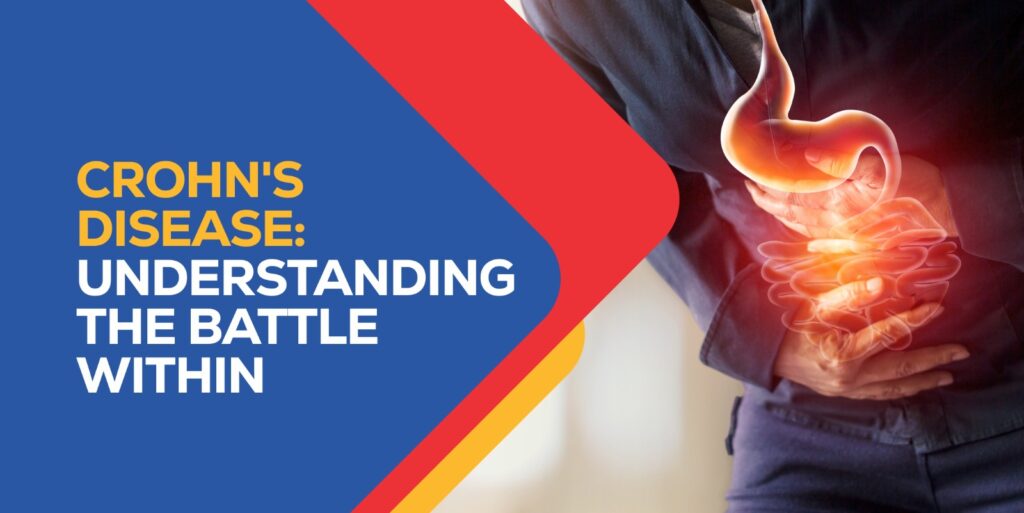Crohn’s disease, a type of inflammatory bowel disease (IBD), is a chronic condition that causes inflammation of the gastrointestinal (GI) tract. It can affect any part of the GI tract from the mouth to the anus but most commonly affects the end of the small bowel (the ileum) and the beginning of the colon. The inflammation can penetrate deep into the layers of affected bowel tissue, leading to painful and sometimes life-threatening complications.
Types of Crohn’s Disease
Crohn’s disease is categorized by the area of the GI tract it primarily affects:
- Ileocolitis: Most common form, affecting the ileum and colon
- Ileitis: Involves only the ileum
- Gastroduodenal Crohn’s disease: Affects the stomach and beginning of the small intestine
- Jejunoileitis: Causes patchy areas of inflammation in the jejunum (upper half of the small intestine)
- Crohn’s (granulomatous) colitis: Affects only the colon
Symptoms to watch out for
Symptoms of Crohn’s disease can range from mild to severe and may develop gradually or come on suddenly, without warning. These can include diarrhea, fever, fatigue, abdominal pain and cramping, blood in the stool, mouth sores, reduced appetite and weight loss. In severe cases, symptoms may include inflammation of skin, eyes, and joints, inflammation of the liver or bile ducts, and delayed growth or sexual development, in children.
Causes of Crohn’s disease
The exact cause of Crohn’s disease is unknown. However, researchers believe it results from an abnormal response by the body’s immune system. Normally, the immune system defends against pathogens like viruses, bacteria, and other foreign substances. In Crohn’s disease, the
immune system responds inappropriately, attacking the cells in the GI tract, leading to inflammation.
Risk factors of Crohn’s disease
Several factors can increase the risk of developing Crohn’s disease:
- Age: Crohn’s disease can occur at any age but is more prevalent among adolescents and young adults between the ages of 15 and 35
- Family history: Those with a close relative with Crohn’s disease are at increased risk
- Smoking: Smoking is the most significant controllable risk factor for developing Crohn’s disease
- Medications: Prolonged use of nonsteroidal anti-inflammatory medications can lead to Crohn’s disease
Treatment
While there is no cure for Crohn’s disease, therapies can significantly reduce its symptoms and even bring about long-term remission. Treatment options include:
- Medication
- Iron, Vit. D, Calcium supplements
- Vitamin B-12 shots
- Nutritional therapy
- Surgery
The goal of medical treatment is to reduce the inflammation that triggers the symptoms. In the best cases, this may lead not only to symptomatic relief but also to long-term remission.
Patients grappling with Crohn’s disease need an empathetic and experienced healthcare partner. With a dedicated department for Gastroenterology, BBR Hospital boasts state-of-the-art facilities and a team of specialists who are well-versed in the latest treatments and management strategies for IBD. BBR understands that managing Crohn’s disease is not just about addressing physical symptoms; it offers holistic care that includes nutritional advice, psychological support, and advanced therapeutic techniques.
The multidisciplinary approach ensures that patients receive personalized treatment plans tailored to their unique needs. With an emphasis on patient education, BBR Hospital empowers individuals to take an active role in managing their condition. The hospital’s commitment to research and adopting new technologies means that Crohn’s disease patients can access innovative therapies that aim to improve their quality of life. At BBR Hospital, the journey to wellness is a partnership between patient and provider, with a shared goal of achieving remission and reclaiming the joys of a healthy life.



